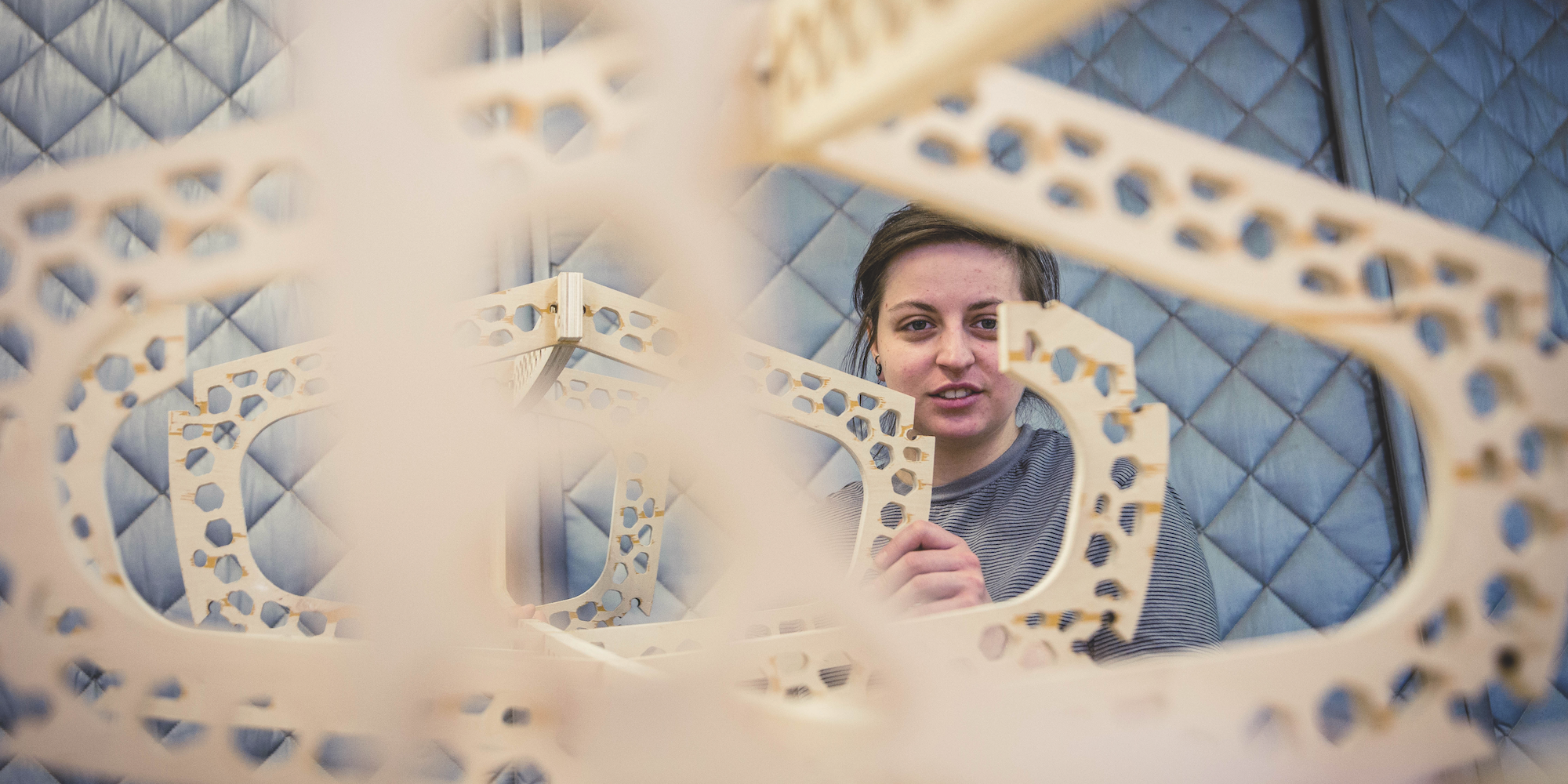2021-2022 University Catalog [Archived Catalogue]
Product Design, MDes
|
|
 Return to: Programs Return to: Programs

Hsin-Chun Wang, Program Director
hswang@uarts.edu
215.717.6259
C O N T E N T S
Description
For students holding a bachelor’s degree in a design field or with equivalent professional design experience, the two-year, 60-credit Product Design MDes curriculum consists of studio, methods, and seminar courses. The curriculum is project-based, which means that each semester’s course content is integrated around studio-based projects. With a particular focus on human-centered design and design for sustainability, the Product Design graduate program explores the nature of materials, products, and manufacturing from a regional perspective, using the Philadelphia metropolitan region as a laboratory and set of case studies for innovative approaches to product lifecycles and culture. New digital fabrication tools and rapid prototyping processes are addressed in addition to the larger cultural, environmental, and business contexts that inform industrial design. The final semester of the two-year program is devoted to a master’s thesis, in which the candidate will work more independently with a group of internal faculty and/or outside professionals to develop a thesis project that must advance the candidate’s chosen field of study. Students in the Product Design graduate program have access to currently practicing design professionals with backgrounds in fields ranging from architecture, environmental design, industrial design, interaction design, social design, design strategy, design research, cultural anthropology, psychology, industrial systems, organizational development, business and entrepreneurship.
Program Objectives
The program objectives for student learning in the Product Design MDes program are to:
- Develop expertise in applying human-centered design process — research, synthesis, ideation, prototyping, and user testing — to the development, production, and iteration of products in a range of manifestations.
- Develop an understanding of the contextual, theoretical, and historical evolution of design practices and techniques, and relate these to current philosophies and best practices in the field, especially with respect to social and ecological implications of industrial design.
- Develop an understanding of new models for the design, fabrication, and distribution of products in the larger cultural, environmental, and business context as it informs contemporary industrial design.
- Build expertise with mechanical and digital fabrication and prototyping tools to create physical models and outputs in a range of fidelities and formats.
- Develop the ability to communicate the value/role of design/designer in a range of contexts for diverse audiences through visually compelling and narratively rich documentation and presentations that effectively communicate the design process and project outcomes.
- Deliver an independently directed design thesis project that demonstrates expertise in the use of methods and tools for industrial design as applied in real-world contexts with actual people and organizations.
- Embark on numerous professional pathways within and beyond industrial design which require expertise in design process and design thinking, design research, collaboration, product design, modelling, and fabrication that are supported by visual thinking, visual communication, and strategic thinking.
Program Requirements (60 credits)
|